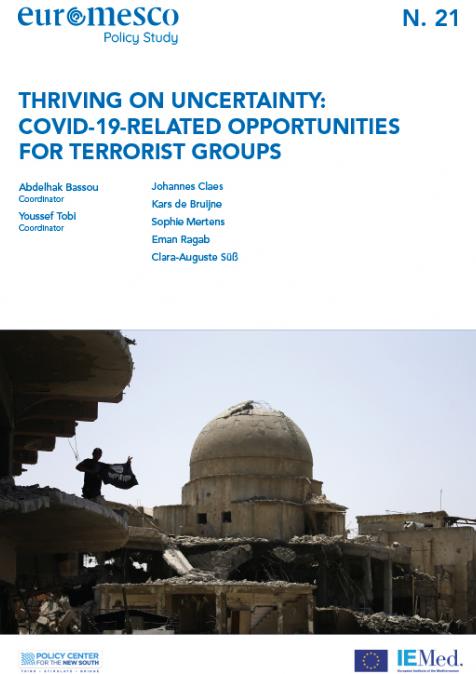Les Mardis du PCNS 20/04/2021: تمدد التنظيمات الإرهابية بإفريقيا وتداعياتها على الأمن القاري
سيخصص برنامج حديث الثلاثاء حلقته لهذا الأسبوع إلى تحليل ومناقشة تمدد التنظيمات الإرهابية بإفريقيا وتداعياتها على الأمن القاري باستضافة عبد الحق باسو، باحث بارز بمركز السياسات من أجل الجنوب الجديد. إن توالي الأزمات تؤثر على الأمن بالقارة الإفريقية بالإضافة إلى تنامي نشاط الجماعات الإرهابية، فضلاً عن خطر الجريمة المنظمة العابرة للحدود، حيث ثمة جماعات إرهابية تقوم بتنفيذ الكثير من الهجمات ضد القوات المسلّحة والقوات الدولية التي تدعمها في منطقة الساحل ومناطق أخرى كما جرى مؤخرا في الموزمبيق. تزايد التهديد الإرهابي بالقارة الإفريقية فأصبحت تعد الآن منطقه التوسع التي تبنتها ما يسمى بالدولة الإسلامية نظرا للحدود المليئة بالثغرات، مثل الحدود بين تنزانيا وموزمبيق، إضافة إلى الأنظمة السياسية الهشة أحيانًا علاوة على مظاهر الإحباط ونقص الوظائف والبنية التحتية للتجنيد. وفقًا لتقرير صادر عن مؤشر الإرهاب العالمي، "تحول مركز ثقل تنظيم الدولة الإسلامية من الشرق الأوسط إلى إفريقيا". فما هي مظاهر الحركات التي تشنها الطوائف والجماعات الإرهابية في منطقة الساحل؟ وما هي الأشكال التي تتخذها؟ ما هي الخطوات التي يمكن اتخاذها لترقب التهديد الإرهابي المتربط بهاته الجماعات ونحن نعلم أن اكتساح مناطق أكبر جغرافيا لا يزال يهيمن على أهداف الجماعات الإرهابية أينما تواجدت؟ هل الخيار العسكري وحده كاف لمواجهة هذه الأعمال الإرهابية؟ وإذا كان الإرهاب مشكلة عابرة للحدود لا يمكن القضاء عليها دون مساعدة دولية، فكيف يمكن فهم مسارح التدخل، أو خلفيات ومقاربات الجماعات، لتجاوز صعوبة التنسيق مع الفاعلين والسلطات المحليين؟ المسيّرة: إيمان لهريش، مسؤولة عن البرامج بمركز السياسات من أجل الجنوب الجديد المتدخل: عبد الحق باسو، باحث بارز بمركز السياسات من أجل الجنوب الجديد









